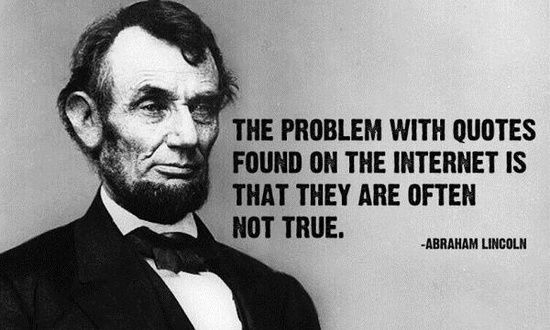A reader of my blog asked if I’d be willing to share some thoughts on the practice of pastors who preach messages from other pastors and present the material as their own without any credit to its original source. This isn’t an issue that I take pleasure in addressing, but I hope it will serve the body of Christ by initiating some much-needed self-examination and dialogue.
While most pastors I know are men of honesty and integrity, it’s a sad truth that the problem of pastors plagiarizing is more wide spread than many realize, especially with the vast amounts of material available on the internet. My friend Barry Arnold, who pastors Cornerstone Church in Gresham, Oregon, writes:
I’m afraid plagiarism is getting more and more common. Once in a while I Google unusual phrases from sermons I have posted online. It is not at all uncommon to find other pastors stealing material. I’m disappointed for their sake because if they are compromising their integrity in teaching, you have to wonder what other areas may be secretly out of control as well.
One pastor took a whole series of messages from me and used them verbatim, changing only the illustrations. At least he was smart enough to know it might be awkward to talk about growing up in an Alaskan village. I emailed the pastor a couple times but he didn’t respond. I then contacted each of his elders separately but none of them ever responded either.
As an author, I often see material online straight from my books with no attribution, so it appears the pastor or blog writer originated the material. I don’t lose any sleep over this—in fact, at times, including when one of my books had clearly influenced the godly author’s writing of several chapters, I’ve honestly celebrated the fact that the material is making an impact. There was something about not being credited, especially believing it wasn’t a conscious choice, that makes me feel like I’m making a difference behind the scenes. Yes, when it’s word for word from one of my books, it bugs me a little, but I hope it’s not bugging me for the wrong reasons, but the right ones.
Our ministry hasn’t felt the need to address every case that comes to our attention. On the other hand, in some cases there is pride or laziness and deceit in taking credit (by implication, when failing to attribute the source) for someone else’s work, and we are compelled to speak the truth in love (Ephesians 4:15). What concerns me even more is, often once the person is found out, they or those who are part of their accountability structure do not respond in repentance but ignore the situation, such as in Barry’s case mentioned above. Our office experienced the same thing several months ago. The pastor seemed surprised when it was pointed out that he had used material from one of my books almost verbatim. He questioned this and asked for specific examples. When they were provided, he never responded again.
Several years ago we found out that a prominent radio pastor’s message was, word for word, four pages out of my book The Treasure Principle. (Someone emailed to ask EPM if I had ripped off this man’s material and used it in my book!) In this case, the particular pastor did contact me and was repentant which was encouraging. (It’s also possible that in some cases the pastor or speaker isn’t aware the material was taken verbatim elsewhere because they have a research assistant who wasn’t very careful.)
I recently discovered that either I or an editor had inadvertently placed an endnote to a quotation from Wayne Grudem too early in one of my books, so it appeared that the following few sentences were mine, when they were actually Grudem’s. Naturally, we contacted the publisher and asked them to change it for the next printing. Mistakes like this can happen, nobody’s perfect, and since it happened to me (and for all I know may have happened in another book), all we can do is try our best not to let it happen, and correct such errors when we become aware of them.
I was a pastor for 14 years. I know that a pastor’s life is very busy and that the temptation to take shortcuts in preparing sermons is very real. That doesn’t change the fact that God is never in the dark. He is always watching. “Whoever walks in integrity walks securely, but he who makes his ways crooked will be found out” (Proverbs 10:9).We may fool ourselves and others, but never God. He knows what we’re thinking about and what we’re doing. And it is His appraisal of our life that ultimately matters.
Paul wrote this advice to the young pastor Titus: “Show yourself in all respects to be a model of good works, and in your teaching show integrity, dignity, and sound speech that cannot be condemned, so that an opponent may be put to shame, having nothing evil to say about us” (Titus 2:7-8).
It may be helpful to realize that many pastors and authors I know, including me, welcome their material that’s online being shared and utilized, as long as proper credit is given. If in doubt, ask! (Our ministry, like many others, encourages visitors to freely share material they find on our site, not only verbally but in printed form as long as no wording is changed, no fees are charged, and credit is given. We never charge a dime for this.)
Sometimes a pastor, in preparing a particular sermon, may have been heavily influenced by another, let’s say John Piper. One way to handle this would be to say, “There’s an online sermon by John Piper that profoundly influenced my preparation this week. Rather than stopping every few minutes to acknowledge my debt to Piper where he influenced my thinking and my words, I want to say this upfront, and encourage you to go to his sermon called * at Desiring God’s website and read it yourself. I’ve added some of my own thoughts and illustrations, but as you’ll see I couldn’t improve on parts of it and I want to be sure you know that much of what I’m saying is from Piper.”
This is being honest and forthright and humble. I wouldn’t recommend drawing heavily from a single source every week, of course, because it’s reasonable for people to assume the pastor is doing his own research. But by all means if you’re heavily dependent on a source, say so. If you are using a direct quotation from someone, say so.
Some sayings are commonly present and their source is unknown. For instance, “Resentment /Bitterness is like taking poison and waiting for someone else to die.” Such statements can be made without attribution, but it’s a good practice to make clear it’s not original with you, for instance, “You may have heard the statement, ‘Bitterness is….’”
One caution. Some speakers over-attribute, e.g. “* * says ‘Christians aren’t perfect, just forgiven.’” This is so widely stated that it’s almost certain it didn’t originate with the person you heard say it. Or “JOY means, ‘Jesus, Others, You.’” Don’t attribute this to your pastor, but don’t make it sound like you made it up either, “e.g. the way I phrase it is, ‘Jesus, Others, You…’” Better to put it, “It’s sometimes said…” Just don’t appear to be taking credit for what didn’t originate with you. Whatever parts of your message or book that you don’t attribute to others will be assumed to be, in their phrasing, composed by you.
Obviously, if you’re saying, “Materialism is harmful,” a thousand other people have said the same thing, and no attribution is necessary. Anyone can say “How we think about God is critically important,” but if you say: “What comes into our minds when we think about God is the most important thing about us,” you’d better attribute it to A. W. Tozer. Now, though I just “made up” the unremarkable statement “How we think about God is critically important,” I expected to see dozens if not hundreds of hits for it online. Turns out there was only one, from someone’s blog six years ago. But since I didn’t get that sentence from that person or anyone else, no need to cite the source…precisely because they were not my source.
Countless things said in any sermon will have been said by someone else—but when the identical wording is exact and extended, then it is obviously taken from a particular source. And making minor changes in words here and there doesn’t make it okay either, as every professor who confronts a student with plagiarism has explained.
Most, if not all, colleges and universities have serious policies that threaten expulsion if a student is found to be plagiarizing. If the world recognizes the ethical problems with plagiarism, how much more should Christ’s church!
I think most of us know intuitively when we’re not doing it right or wrong, but we may need reminders. No matter how we rationalize it, all deception within the evangelical community dishonors Christ, and serves the devil’s agenda. We need to identify deception, repent of it, and embrace the truth of Christ which will set us free to represent Him accurately (John 8:32).
Only when Christian leaders establish new and higher standards will others feel the positive peer pressure and accountability to do the same. Only then will reform be widespread, with honesty and integrity becoming the established norm.





